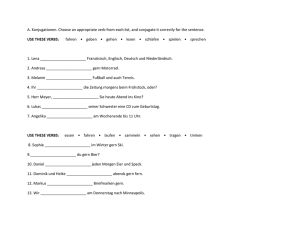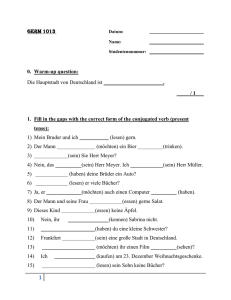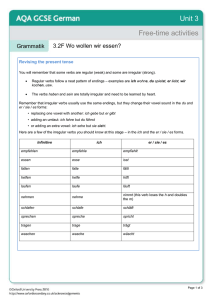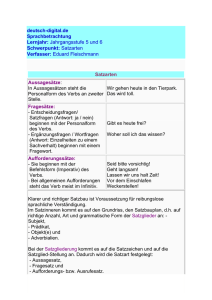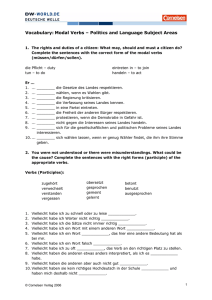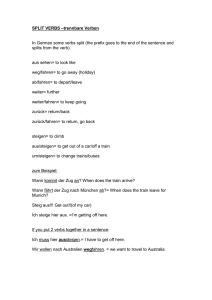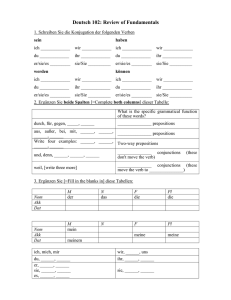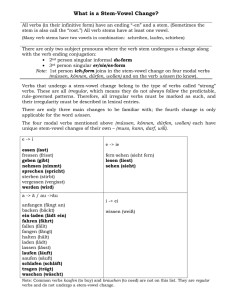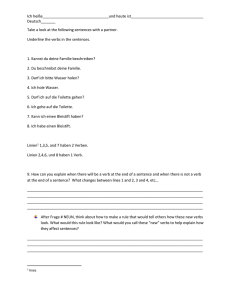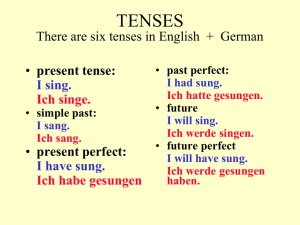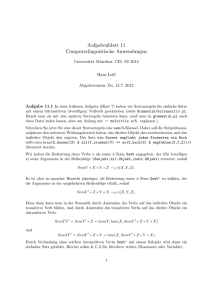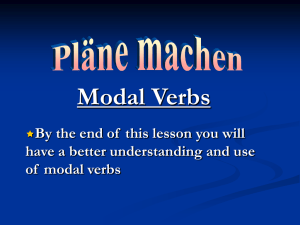haben - Klar!
Werbung
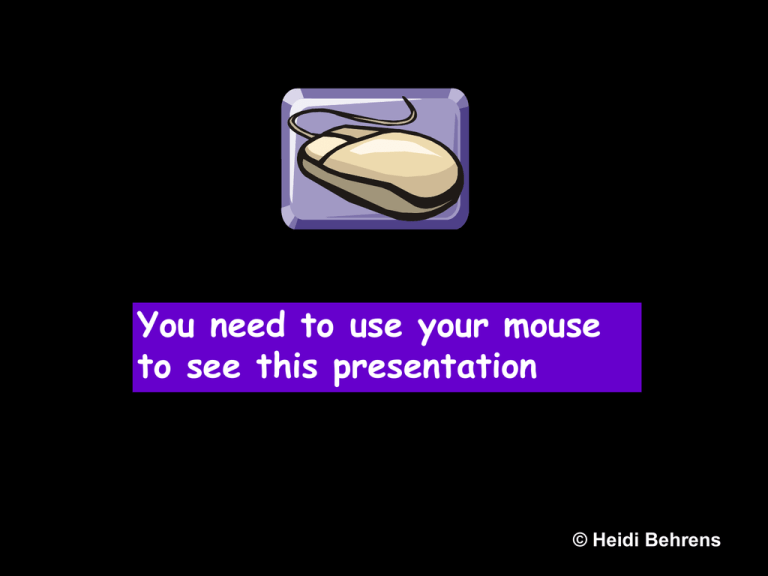
You need to use your mouse to see this presentation © Heidi Behrens You use the Perfect Tense to talk about things which happened in the past. The Perfect Tense is made up of 2 parts Most verbs take the conjugated form of haben’ + Past Participle - the bit at the END of the sentence!!!!! (to have) Let’s have a look at the different forms of ‘haben’ ich du Sie (formal) er (he, e.g. mein Bruder) sie (she, e.g. meine Schwester) es (it) / man (one) wir ihr (informal – group of people) sie (plural) habe hast haben hat hat hat haben habt haben Regular verbs using ‘haben’ Ich habe mein Bett gemacht Wir haben das Abendessen gekocht Er hat den Hund gefüttert Ich habe im Garten gearbeitet Wir haben das Haus geputzt Ich habe den Tisch gedeckt Regular verbs using ‘haben’ Ich habe den Mülleimer geleert Ich habe meine Kleidung gebügelt Er hat den Rasen gemäht Er hat Staub gesaugt Have you noticed…..? • Most Participles (the bit at the END of the SENTENCE) start with ‘ge’ and end in ‘t’. • This is always the case with REGULAR or WEAK verbs. Regular verbs using ‘haben’ Wir haben Ich habe Ich habe abgetrocknet mein Zimmer auf meine Schwester aufgeräumt aufgepasst Have you noticed…..? • The verbs that you have just seen, all have the ‘ge’ bit sandwiched between the prefix and the main body of the verb, e.g. ‘aufgeräumt’. • This is always the case with separable verbs! Irregular verbs using ‘haben’ Ich habe Wir haben Er hat die Wäsche gewaschen abgewaschen die Blumen gegossen Have you noticed…..? • All Participles (the bit at the end of the sentence) start with ‘ge’ and end in ‘en’. • This is often the case with IRREGULAR or STRONG verbs. Some verbs , like ‘gehen’ totally do their own thing and have the conjugated form of ‘sein’ (to be) + Past Participle Let’s have a look at the different forms of ‘sein’ ich du Sie (formal) er (he, e.g. mein Bruder) sie (she, e.g. meine Schwester) es (it) / man (one) wir ihr (informal – group of people) sie (plural) bin bist sind ist ist ist sind seid sind Irregular verbs using ‘sein’ Ich bin mit dem Hund spazieren gegangen Wir sind in der Stadt einkaufen gegangen Verbs that take ‘sein’ instead of ‘haben’ are usually verbs that express movement,i.e. going or travelling Was hast du gestern Abend gemacht? Gestern Abend habe ich den Tisch gedeckt und ich habe das Abendessen gekocht. Nach dem Essen hat mein Bruder abgewaschen und meine Mutter hat abgetrocknet. Als ich jünger war (when I was younger), habe ich oft Staub gesaugt.
